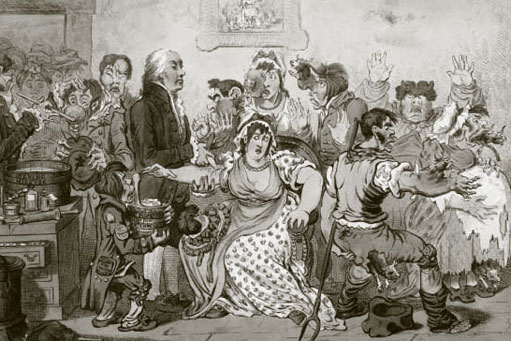9.3 Parents' responses to the risks
Bellaby, P. (2003) ‘Communication and miscommunication of risk: understanding UK parents' attitudes to combined MMR vaccination’, British Medical Journal, 327, 27 September 2003, pp. 725–28. Reproduced by permission from the BMJ Publishing Group; Mary Evans Picture Library Ltd; P A Photos.
Although road transport crashes carry by far the largest risk of the three, they have raised little controversy.

The alleged link between MMR vaccination and autism and the small risk of vCJD both met with widespread concern from parents. There has been conflict between expert and lay opinion about MMR and vCJD. Bartlett suspected collusion between government and industrial interests to cover up the threat from BSE.9 Similar suspicions of cover up by government developed after Wakefield's claims about MMR and autism.
Adams dismissed the possibility of a Richter scale of risk, arguing that uncertainty and probability are elusive concepts and that the public quite reasonably finds some risks readily perceptible10; but others, known to experts, are not acknowledged by the public, and still others are “virtual” rather than real. Unfortunately this classification does not seem to account for how parents perceive the three risks in question. Road transport crashes are perceptible risks, the low risk of vCJD is an expert assessment, and the link between autism and MMR is, if anything, virtual. Parents seem to neglect the easily perceptible risk, to reject the expert assessment, and to amplify the virtual risk.
Does this suggest that parents are irrational? Might they be pawns of mass media that seek not the truth but to support minorities against authority, as Bedford and Elliman imply?11 It is a short step from answering “yes” to arguing that the authorities ought to act in the interests of the child, if need be against the wishes of parents, as the Court of Appeal has ruled against two mothers in recent cases involving MMR vaccination.12
